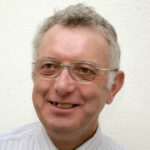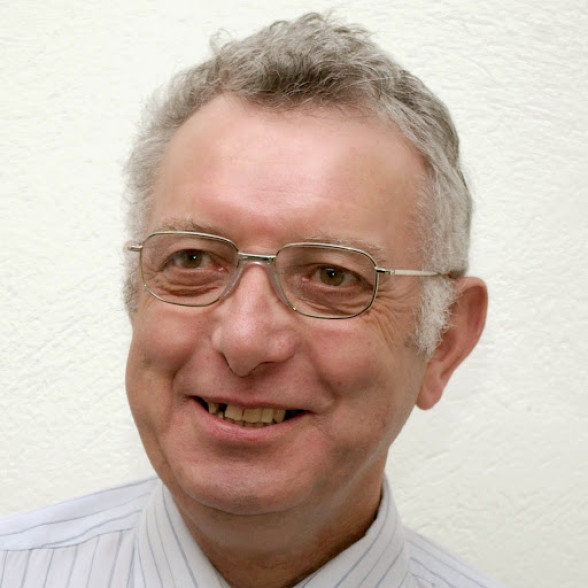 DAI member and friend Ken Clasper has been writing a blog for many years on his experiences of living with Lewy Body Dementia. A recent one on how dementia may affect a persons religious or spiritual life was very interesting, and we thought it worth sharing here.
DAI member and friend Ken Clasper has been writing a blog for many years on his experiences of living with Lewy Body Dementia. A recent one on how dementia may affect a persons religious or spiritual life was very interesting, and we thought it worth sharing here.
Thank you as always Ken, for your terrific insights, and willingness to share them with the whole world. #WAM2016 #DAM2016
Memory Problems and Religion
By Ken Clasper, first published on 9 September 2016.
"The other day I was having a conversation with an elderly clergyman.
We were discussing various things, and then I said that I no longer attend churches because the services are all so very different.
He questioned what I meant by this, not pushing his views, but he was interested in my reasons for giving up my religion.
I say giving up my religion!
But I am still a Christian, even though I never attend a church service these days, and as far as that is concerned, I like many thousands of others are still very religious even if we no longer go inside a church.
It's a long story I said, but it started around 12 years ago when I realised that my memory was going.
Until this time I has always been very religious, and as a boy in the church choir, I would attend three services perhaps each Sunday.
As an engineer I would go to church, but I would carry a pager for emergencies, and would leave the service if it went off.
How ever 12 years ago I started to forget how to do my job, something which shocked me, and I got very distressed because I did not understand what was happening.
All of my electrical training was disappearing, and it felt as if a virus had wiped my memory completely.
I was then very ill with Pnuemonia and my memory took a hammering again.
One day I went to church and realised that I no longer remembered the Lords Prayer.
I was totally devastated at this, and try as I might, I just could not remember the words.
When you forget the things like this, that you learnt as a child it can be very upsetting, and even worse when coupled with forgetting his to do your job.
After trying for a few months, going over and over the words, I started to get to grips with it, and I felt really proud of myself.
However the next time my wife and I went to church I realised that the words of the Lords Prayer were totally different?
But I said I will push myself to go in the hope of getting the words right.
But then I heard that the church used a different version of this Lords prayer at every service, and to make things even worse, there were occasions when they would sing it.
I had learnt to sing and follow music as a child, but now I find it difficult to read the words while following the music.
As a boy chorister I remember singing Handles Messiah in Durham Catherdral. This was done by our own church choir, the Cathdreal choristers and another choir.
I vaguely remember this, but now I am unable to sing properly, and unable to read music.
In a vane attempt to sort things out, because memory lose, is something that thousands struggle with, I spoke to the local priest, but he just shrugged his shoulders and said that he could do nothing about it.
I then said, what about all of the elderly congregation with memory problems, people who attend every week, and pay your salary.
But I got no answer. So obviously the elderly and those with memory problems are nothing to do with the church.
To add insult to injury, I was once accused of staying with the past and not keeping up with modern times.
But we were taught the original forms of service and prayers as children, yet here it was being thrown out with the bath water so to speak.
....
Had it not have been for my daughter telling me about voice activated computer software, I would not be using a computer to keep myself active these days. "
Go to his blog to read the full post...
Note: Ken's blog was forwarded to a chaplain friend of DAI's in Australia as we felt it would be of interest to him. He felt it might be helpful to send us this his response, which I have shared below.
"This makes interesting reading to me.
It is a bit of a re-mind-er of some of the battles I have had on the same theme. I always used the 'old' familiar version of the Lord's Prayer and other common worship liturgy when doing services in Aged Care - and especially with people with dementia in so-called 'memory support units'. I found that the poetic resonance as well as the known words helped, or seemed to help, people connect into a more meaningful experience of worship. (I now have some questions about worship per se.)
I think that the writer touches on something important.
This is the desire to connect with the emotional, affective and experiential aspects of his (former) faith practice. While there is clearly frustration at not being able to remember things from his past religious practice, the essential component of that experience is perhaps still valued and known to him. It is unfortunate that so much emphasis is placed on getting the words right and in the right order when it really is all about a sense of being able to 'rest in' the comfort and care of what those words are attempting to express.
When the actual words are lost to us, the meaning that they impart at a deeper, more spiritual level may remain. Yes, people with dementia forget or do not have the format available to them anymore but the vehicle to the deep things is in the pathos, rhythm and mood of the language. It may not be enough to say that remembering precisely no longer matters, but it has always been the case that the experience has been the transforming thing. How often are we moved by worshipful music and choir renditions in languages we do not know. It makes me wonder if in fact the writer may find something in deliberately joining in or listening to worship that is in a language that has always been totally unfamiliar - Fijian choir harmony or old Latin?
The other side of all this is the way nearly all Judeo-Christian story has revolved around memory. I think the church did a good job once by re-telling it's story in familiar liturgy and readings but with all the 'smoke and bells' and 'theatre' accompanying it. That way it was a total sensory experience. With the constant trend towards using only relevant more modern language the nuances of the craft of worship forms has been lost - or weakened.
It is time that the churches recognized the limits of didactical approaches with their dependence on perfect memory (even quasi-legal) and re-discovered the value of sensitive emotional and experiential forms. (Worship forms should be designed around the people not the leaders.)
The writer may be helped by an approach that looks at this as just another change in his life. We go through many changes - cognitively, socially, emotionally and mostly get through them with a little help from our friends and family. I am guessing, but even though changes in the past may no longer be a clear memory, there is a lingering awareness that we have lived through many changes.
This has all been a bit long-winded, so the nutshell version is: go for the feeling, it has always been what has given the 'facts' their relevance and vitality."
